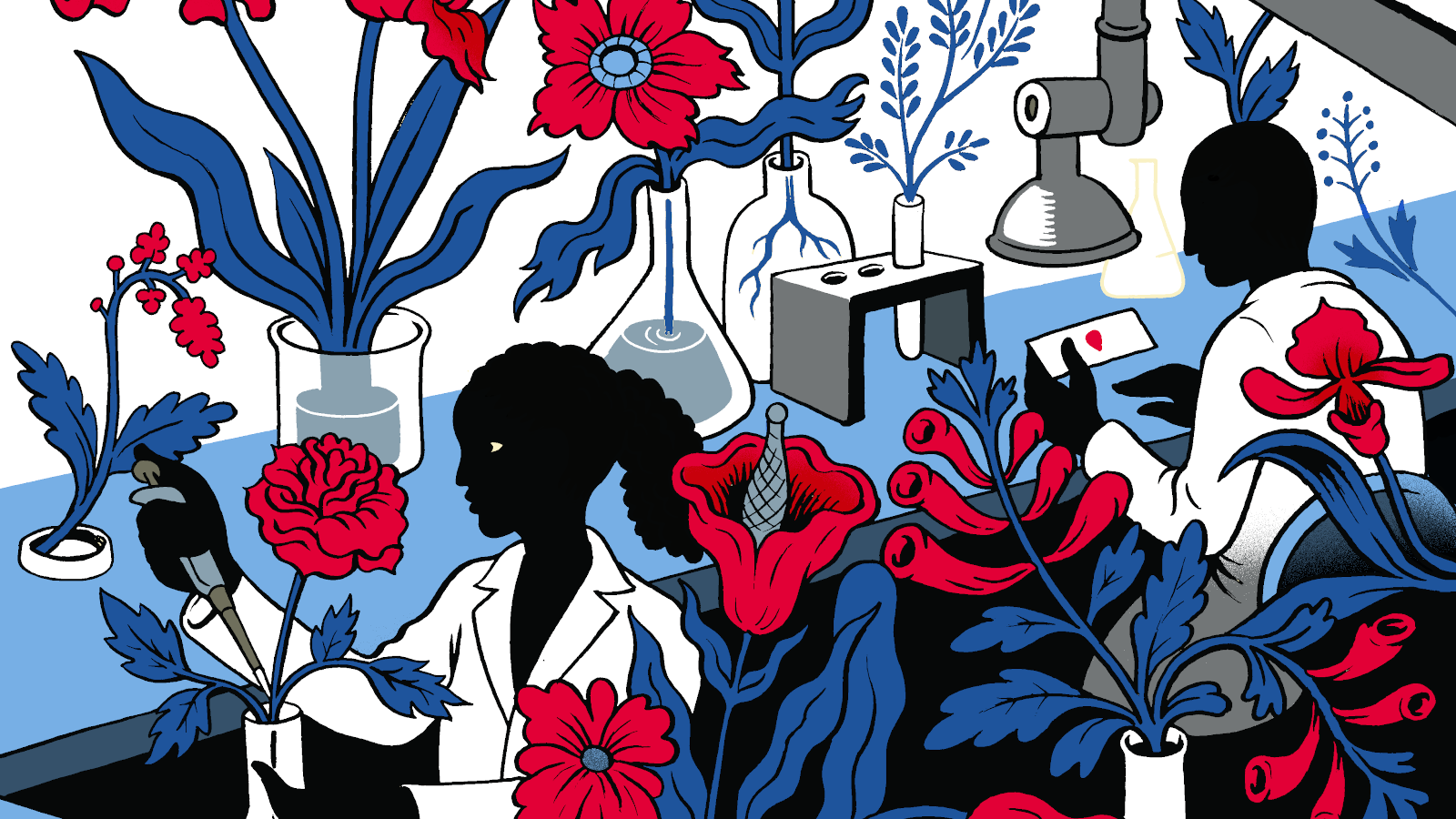June 4, 2025
Science for the People seeks proposals for articles, art, and other content for the upcoming issue on “The Political Economy of Science” (Volume 27, no. 2).

Whenever major cuts to science funding are introduced, even scientists who describe themselves as neutral or apolitical are forced to recognize the political and economic factors that shape their work. What comes next is often a rallying cry to defend what existed before the cuts—and understandably so, since with the loss of funding comes impacts to public health, cuts to environmental monitoring, and threats to other fields. At the same time, the solution to ideologically-driven reactionary attacks on science must never be a defense of the status quo. Science is always shaped by economic and social forces; it is subject to the laws of the market and to the whims of leaders. One task of radical science is to make these processes visible: to study and characterize the effects these external pressures have on what knowledge is—and isn’t—produced. This issue of SftP magazine, “The Political Economy of Science,” will focus on such analyses.
We are looking for pieces that focus on macroeconomic approaches to the role of science in global networks of production. Instead of focusing on how science gets done, we are looking for pieces that map out who is getting paid, for what, where, and why. We want to explore the role of science in commodity production and circulation, while also recognizing that scientific knowledge itself can function as a commodity. What separates political economy from economics is that the former always centers power imbalances and dynamics; for instance, the power that funding agencies wield to shape research agendas, and the position of power that scientists have in the global economy. We therefore ask that the pieces submitted to this issue be generally framed around the issue of science funding: its political origins and the effects it has on science, both local and global.
We ask authors to submit proposals that are concrete, that is, based on lived experience, case studies, or direct knowledge of the impacts of funding structures on particular fields of science. Since science is a global human project, any discussion must include all the voices taking part in its production. In a world where science has been a vehicle of imperialism, our analyses of power structures would ring especially hollow if they were not backed by the experiences and concerns of the Global South. For these reasons, we particularly encourage writings based on specific case studies, expert witness, and from across the globe.
We announce this issue during an unprecedented attack by the current US administration on the largest public research funds in the world. The AI boom is the latest in a series of economic shocks further pushing the academy towards private interests. We are in the midst of ongoing imperialist war and genocide that are inextricable from the politics of science and technology, and stumbling recovery efforts from a pandemic that left the world more dependent on, and yet less trusting of, public health institutions. Under such conditions, a discussion of political economy in science is timely. However, we must avoid the pitfalls of defending a system that enforces inequities and exploitative practices, some of which we scientists are dependent on, especially in the Global North. A radical critique of the political economy of science and knowledge production is not enough by itself; the goal is to change such modes of production. Such a goal requires escaping the structures that make a world outside of capitalism seem unimaginable, and envisioning what scientific research and knowledge production could look like from an anti-capitalist, anti-imperialist lens. It is our hope that this issue will present not only the necessary critique of the current system, but also horizons to build towards.
We welcome submissions on any of the following:
- Venture capitalism in science
- The influence of private industry on academic science
- Public financing of privately owned science
- Global perspectives on the western concentration of the means of scientific knowledge production (e.g. – intellectual property rights, TRIPS, trade agreements, R&D in the core vs periphery)
- War, militarism, and imperialist processes that undergird scientific production
- Alternatives to capitalist funding structures of science
- The industrialization and deskilling of different scientific disciplines/fields
- Experiences/viewpoints from graduate students, postdocs, technicians, staff scientists, faculty, and others
Submission Guidelines:
Submit proposals here (English) or here (Español).
Deadline for submissions: July 2, 2025
- We ask prospective authors to provide a detailed outline.
- We accept proposals for features, opinions, book and media reviews, artwork and more. You can read more about the kinds of articles we publish and our rates here.
- Please keep outlines under one page and image uploads to 20 Mb total.
- Science for the People articles are geared toward non-specialists, and are written in a journalistic format and from a radical perspective. We consider submissions from scientists across the STEM fields, scholars working in science and technology studies, as well as non-scientists and non-specialists. We especially encourage submissions from activists and those organizing in the sciences, and those working in the humanities and arts at their intersection of science and technology. We particularly welcome women, people of color, non-binary individuals, and others traditionally underrepresented in these fields to send submissions to Science for the People.

